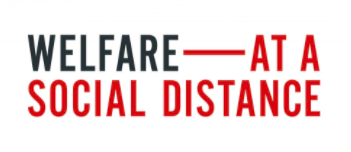


Dr David Robertshaw and Dr Daniel Edmiston, University of Leeds
This presentation draws on recent findings from the national ESRC-funded Welfare at a (Social) Distance research project, which is currently investigating how the benefits system in England is performing in the context of the Coronavirus pandemic
The coronavirus pandemic has disrupted most people’s relationship to paid work. For millions, this has resulted in income or job loss and a great deal of uncertainty about what is on the horizon. The Welfare at a Social Distance project is investigating what impacts the pandemic has had on people’s shifting relationship to work and worklessness and how the benefits system is responding to a new COVID-era cohort of benefit claimants. Over the last decade working age benefits have undergone profound changes in the UK. A stricter regime for claimants has been introduced through a range of reforms, including the amalgamation of means-tested benefits into a single ‘digital by default’ Universal Credit. The Coronavirus pandemic has presented a major challenge for this reformed system. As new claims for Universal Credit surged in mid-March, the Department for Work and Pensions (DWP) rapidly actioned its pandemic flu plan: face-to-face appointments and job-search ‘conditionality’ were both suspended as DWP sought to process a surge in new applications for unemployment benefits. While many people would receive 80% of their normal wage under the Coronavirus Job Retention Scheme, others entered the existing benefit system for the first time. The Welfare at a Social Distance team is investigating these COVID-era changes through a three-stage survey of 7,000 new and existing claimants and longitudinal interviews with 80 new and existing claimants. This presentation draws upon the first phase of our research. It will explore who this first new cohort of COVID-era claimants were, and how they were different to existing recipients of working age benefits. It will also consider the responsiveness and adequacy of provision by reflecting on the experiences of new and existing claimants in navigating the online system and accessing support.
